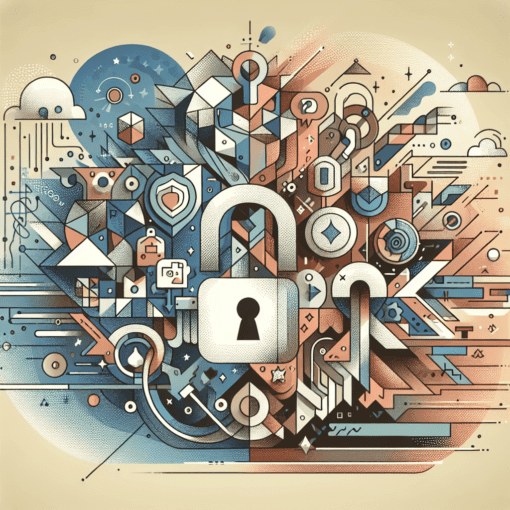Blockchain Certification Platforms: Revolutionizing the Verification of Credentials
In today’s fast-paced, technology-driven world, the importance of trustworthy credentials cannot be overstated. Whether it’s an academic degree, professional certification, or a specialized training certificate, these credentials form the backbone of professional credibility. However, traditional methods of verification are cumbersome, slow, and prone to fraud. Enter blockchain certification platforms—an innovative solution that promises to transform the way we view, manage, and verify credentials.
Understanding Blockchain Technology
What is Blockchain?
Blockchain is a decentralized ledger technology where data is stored across a network of computers, ensuring that records are immutable and transparent. Each ‘block’ of data is securely linked via cryptographic principles, forming a chain that is resistant to unauthorized alterations.
Key takeaway: Blockchain ensures data integrity and security through decentralization and cryptographic security, making it an ideal solution for credential verification.
How Blockchain Can Transform Credential Verification
By leveraging blockchain technology, certificates and credentials can be stored in a secure, immutable digital format. This transformation allows both issuers and verifiers to confirm the authenticity of credentials swiftly and accurately without relying on slow and manual processes.
Underlining the importance of digital verification, over one-third of professionals admit to exaggerating their qualifications, according to various studies.
Advantages of Blockchain Certification Platforms
1. Enhanced Security and Fraud Prevention
Blockchain’s inherent security protocol prevents data tampering, ensuring that issued credentials remain authentic and trustable. This is particularly significant in combating the epidemic of fraudulent certifications.
Example: A university can issue degree certificates on the blockchain, making it nearly impossible for someone to forge or alter the credential after issuance.
2. Instant and Global Verification
Traditional credential verification can take days or weeks, especially if it involves international institutions. With blockchain, verifiers can instantly check the validity of a certificate, reducing both time and cost.
Anecdote: Companies like Learning Machine have partnered with MIT to implement blockchain-based diplomas, enabling employers to verify educational credentials quickly.
3. Privacy and Ownership
Unlike traditional systems where institutions hold significant power over credentials, blockchain allows individuals to own and control their certifications. Users can choose when and whom to share their credentials with, enhancing privacy.
Quote: “Blockchain gives the power back to the credential holders, who can manage their certificates without intermediaries.” – Dr. John Roberts, Blockchain Enthusiast.
Real-World Case Studies
Case Study 1: Blockcerts by MIT Media Lab
Blockcerts is an open standard for creating, issuing, viewing, and verifying blockchain-based certificates. Developed by MIT Media Lab, it empowers learners and institutions around the globe.
Through Blockcerts, organisations can issue verifiable digital credentials, making it easier for graduates to share their accomplishments with employers or educational institutions.
Key Insight: The success of Blockcerts demonstrates the feasibility of implementing blockchain certification on a large scale, promoting interoperability and transparency.
Case Study 2: IBM’s Digital Health Pass
While not solely focused on traditional education, IBM’s Digital Health Pass is a compelling example of the blockchain’s versatility in tracking professional credentials. The platform allows entities to issue digital proofs of health credentials, such as test results or vaccination status, fostering trust in professional environments.
Bold Insight: Industries beyond education can leverage blockchain for verifying various professional qualifications.
Overcoming Challenges in Blockchain Certification
Adapting to Technological Changes
While blockchain offers many advantages, its adoption requires a willingness to adapt to new technologies. Educational institutions and professional organisations must invest in infrastructure and training to ensure successful implementation.
Example: Georgia Tech’s integration of blockchain in its certification process required an initial learning curve, but helped streamline operations in the long run.
Ensuring Universal Acceptance
For blockchain certification platforms to be effective, widespread acceptance and standardization are essential. Efforts must be made to establish universal protocols that facilitate interoperability across different systems and geographical areas.
Quote: “Creating universal standards is as important as adopting the technology itself. It ensures that we all speak the same ‘digital’ language.” – Julian Bryant, Blockchain Consultant.
The Future of Blockchain Certification Platforms
Increasing Adoption Across Industries
With the growing recognition of blockchain’s potential, many industries beyond education are exploring its application for credential verification. Healthcare, finance, and technology sectors are particularly interested in blockchain for verifying professional certifications.
Insight: As more industries adopt blockchain for verifying credentials, the demand for interoperable and secure systems will drive further innovation and acceptance.
Towards a Decentralized Recognition System
Envision a world where anyone can acquire learning from diverse sources and have their skills recognised on a single, secure platform. Blockchain certification platforms can create a decentralized ecosystem for lifelong learning and skill recognition, bridging gaps between educational institutions and workplaces.
Anecdote: Blockchain in Education (BlockEDU) initiatives emphasize creating decentralized recognition systems worldwide, promoting a more versatile and accessible education ecosystem.
Conclusion
Blockchain certification platforms have the potential to revolutionize the credential verification process. By offering enhanced security, instantaneous validation, and user-centric control, they address the challenges faced by traditional systems. As adoption increases and technology evolves, blockchain holds promise for transforming education and professional industries on a global scale.
In embracing blockchain, we stand on the brink of a major transformation in how credentials are managed and verified—a shift that promises to redefine credibility in the digital age.
“Blockchain-based certification is not just a trend; it’s a necessity for achieving a transparent and secure future of credential verification.” — Sarah Klein, EdTech Innovator

